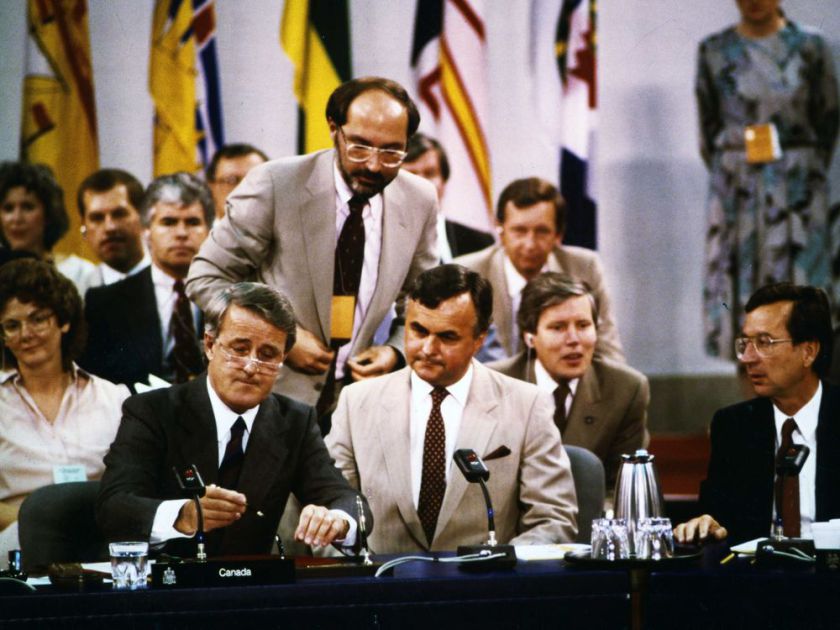During Meech Lake, I was living in Calgary. I don’t know if watching the debacle from afar was more painful than living through it in Quebec, but never did I come closer to giving up on Canada. Something astonishing.
My family, dyed-in-the-wool federal and provincial Liberals, supported Lester B. Pearson in Ottawa and Jean Lesage, the premier who oversaw the Quiet Revolution, in Quebec. I must have been the only francophone who did not flirt with sovereignty during adolescence.
It must be said that a first cousin had married a Belgian man named Georges Schoeters who went on to create the Front de liberation du Québec in 1963. The pain and shame this brought on our family did not endear me to separation.
Back to 1988. I am sitting on a CP Air Boeing 737 on my way home to Calgary after business meetings in Montreal. I was working for that airline.
I had gone straight to the airport from a 1980s Montreal-style business lunch at Alexandre that ended after three hours of great French food, great French wines and great conversation in any language needed. Those were the days.
I remember feeling very sad during the flight. Not sad because I was going home — I loved Alberta — but because I felt it in my bones that Quebec’s unique character, a product of its people, its history and its geography, was not seen by the rest of Canada as an asset but as a pain in the ass. It was obvious that Meech was going to fail, despite then-prime minister Brian Mulroney’s best efforts.
Like it should have been obvious that Pierre Elliott Trudeau would renege on his word, four times given to Quebecers, to “take action to renew the Constitution” after the victory of the No side in the 1980 referendum on sovereignty-association, “in a manner to suit Quebecers,” in the words of the Pépin-Robarts Commission on national unity.
The messes that were Meech and Charlottetown, the wall-to-wall refusals by Canada to accommodate Quebec’s five traditional demands — which did not take anything away from the other provinces — was probably as painful to francophones, who had voted against the grain, as were both referendums to anglophones and allophones.
We had said No to independence, and that was our thank you note?
I am much older now and not prone to resentment. But as time goes by, I can think of many reasons why independence makes sense. In that respect, the federal government is a gift that keeps on giving.
Example: were francophones supposed to applaud Mélanie Joly’s $500 million deal with Netflix when it does not include the obligation to produce French-language content? Netflix creates French-language content in France. Why not here?
To remain a happy federalist, a francophone has to believe in a bilingual and bicultural Canada, something that gets harder and harder as multiculturalism, the Trojan horse of the 1982 patriation of the Constitution, changes our cultural landscape forever.
The Quebec “difference” is becoming a “difference” no different from the others.
A 400-year-old homegrown culture is now equal to every culture every immigrant is encouraged to keep. In hardcore Canadian multicultural circles, integration into English or French society is a colonial and racist concept.
Nothing in my political lifetime has made me more upset that Justin Trudeau’s declaration that “Canada has no core identity,” that Canada is the “first post-national state.”
When Canada annoys me, I return to a safe place I call “the idea of Canada,” a place I love no matter what because it is perfect. In real life, to be happy as a Québécois and a Canadian, I allow for mistakes, mine and others’, and offer forgiveness.
As the elections approach, when people will debate identity and the fear of disappearing, deep down inside this is the sort of thing they’ll have in mind.




























